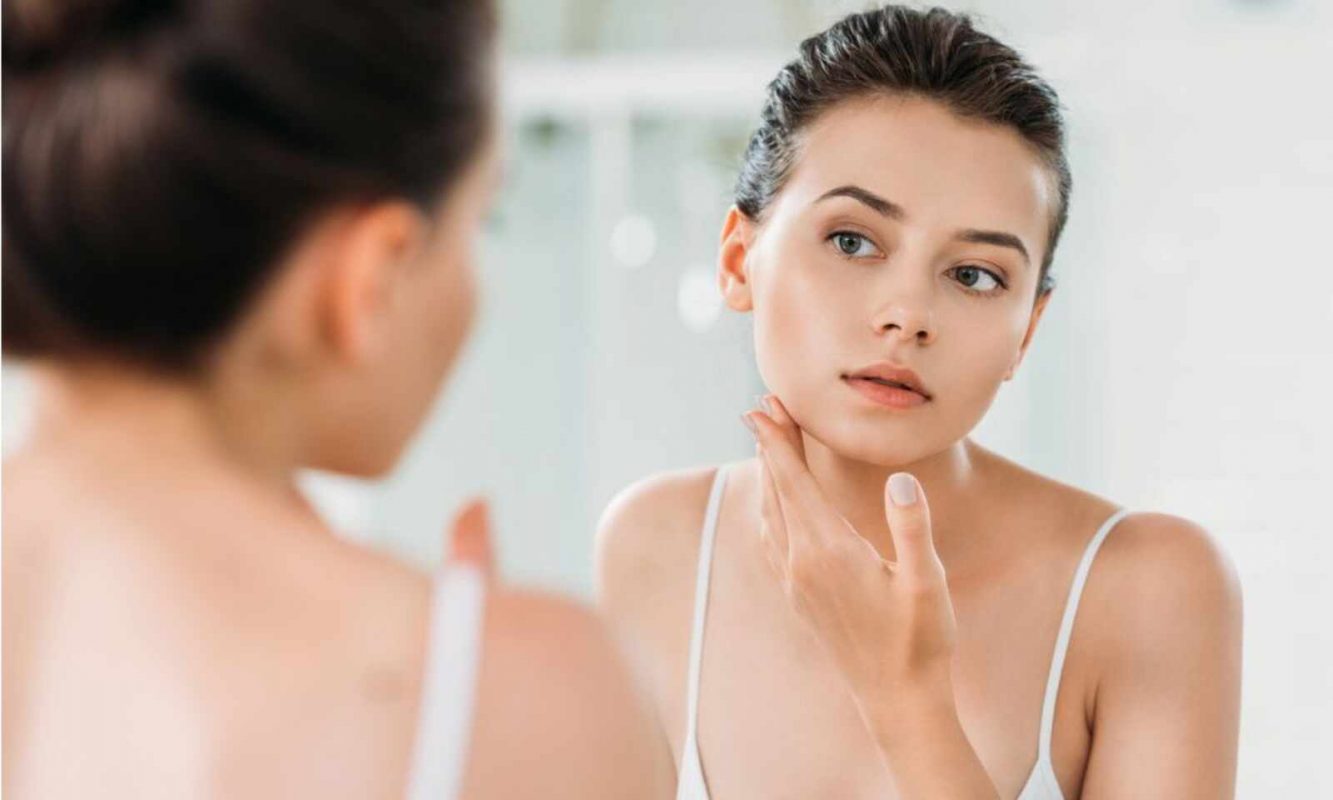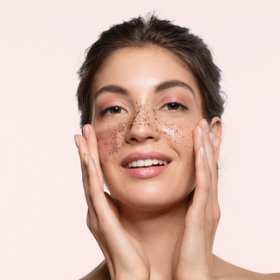Skincare
PCOS & Skincare: All You Need To Know
Don’t let PCOS/PCOD hinder your confidence
Polycystic Ovarian Syndrome/ Disorder (PCOS/PCOD) is a disorder where one out of ten women of reproductive age are affected. It is characterized by irregular periods, excessive release of androgen, that is high levels of male hormones which cause excessive body or facial hair, and polycystic ovaries, where the ovaries enlarge and follicles surround the eggs. It is also a common cause of infertility in women.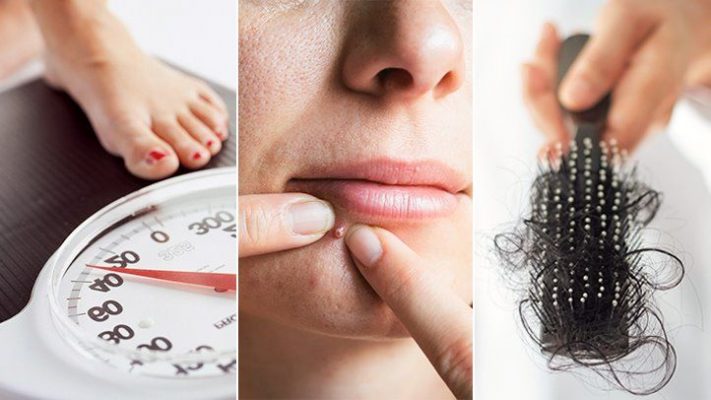
PCOS results in many bodily changes like sudden weight gain, excess body hair, acne, and other issues. Dryness, excessive dandruff, hairfall, and itching are also common problems. Luckily, with some hormonal medications, a healthy lifestyle, and a proper skincare regime, you can take better care of your skin!
PCOS & Skin Impact
PCOS affects the body and skin in a lot of ways! Most of the common skin problems are as follows:
Hormonal acne: Women with PCOS may have acne around the lower part of their face i.e around the jawline, upper neck, lips, and chin. This can be in the form of blackheads or pustules. Some may also have cystic acne, which is a serious type of acne, that requires medical consultation.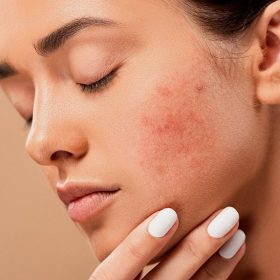
Hair fall: As the levels of androgen, the male hormone is high, hairline starts to recede especially in the front of your scalp. This causes hair thinning and hair fall.
Hirsutism: Hirsutism refers to the excessive growth of hair on different parts of the body. Common areas of hair growth are the upper lips and chin. The sidelocks may also experience increased thickness. There’s also hair growth on your body in the back, chest, and around the navel.
Why is it important to adopt a PCOS- friendly skincare?
Having acne coupled with excess body hair can be really frustrating. Women having PCOS have excess sebum production that leads to more oily skin than normal. One of the major reasons behind this is the higher levels of androgen. Because of this, many skincare products become less effective as they are unable to get absorbed into the skin easily. 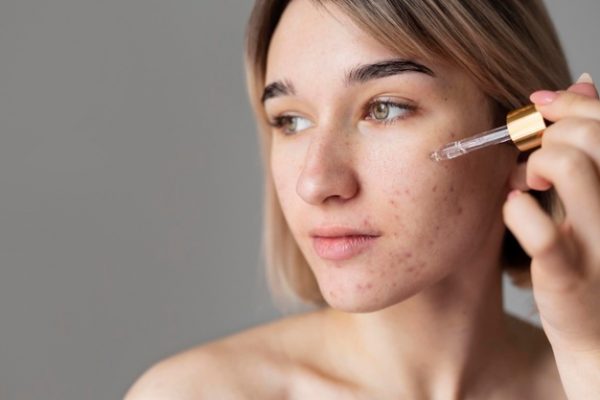
It is important that you follow a proper PCOS skincare routine in order to lower the production of sebum, reduce the acne-causing bacteria and unclog pores. Following an effective treatment plan along with the specific PCOS skincare regime may help to some extent.
Ideal Skincare Tips
Skincare should always be a part of your daily routine. Incorporate a few of these tips for a healthy difference to your skin:
- Gentle Exfoliation: Having oily or acne-prone skin doesn’t really mean that you shouldn’t exfoliate at all. Use a gentle exfoliator to get rid of all the dirt and impurities. This will also help to unclog pores. Exfoliate twice or thrice a week is considered ideal for healthy skin!!

- Consistent Daily Routine: Having a consistent daily routine will help your acne in the long run. Use a salicylic-based cleanser, alcohol-free toner, gel-based moisturizer, and a gel-based sunscreen in your AM Routine. Wait for at least 6 to 8 weeks for your skincare products to show results, before giving up on your new product. You should also consult a professional for products that suit your skin.
- Don’t overwash your face: Washing your face twice a day is ideal for people with oily skin as it helps to unclog pores. Washing more than twice a day will strip off the skin’s natural oils and make it dry. This will further lead to more breakouts which you definitely don’t want anymore!!!
- Stay hydrated: Drinking sufficient water is important to manage PCOS/PCOD symptoms. This flushes out harmful toxins, cleanses the digestive tract, and also ensures regular menstrual flow.
- Exercise daily: As one of the common symptoms of PCOS is weight gain, it’s important to exercise daily. If you can manage your weight with exercise, then other PCOS symptoms can be easily managed too! 20 minutes of daily exercise is highly recommended! So, put on that gym wear and get going!!!

- Avoid Comedogenic Products: Avoid skincare products that are comedogenic in nature like cocoa butter, butyl stearate, almond oil, coconut oil, shea butter, cetyl acetate, and other ingredients. These may worsen hormonal acne.
What’s next?
While it is extremely common to have skin problems, it is important that you consult a dermatologist and your doctor for your condition. It may not have any cure, but it still is a manageable condition. A simple change in health, lifestyle, and diet will help you in the long run!

